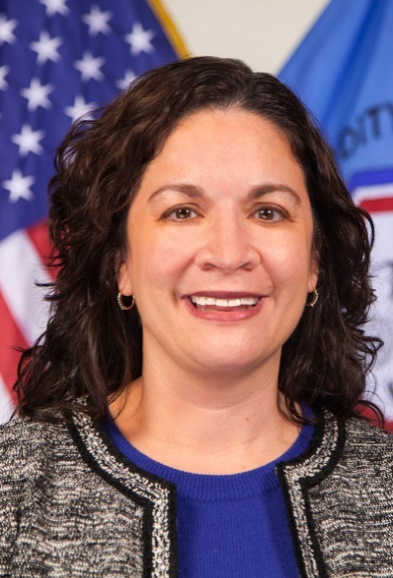
The Commodity Futures Trading Commission has opened a new “competitive” front in its strategy to stimulate technology innovation.
Continuing to raise its profile in parallel with other supervisory agencies' efforts to encourage fintech and regtech innovation, the U.S. futures-market overseer has launched a contest called Project Streetlamp. It “challenges innovators” to contribute to a specific regulatory objective: “to leverage artificial intelligence (AI) and other technologies to identify unregistered foreign entities potentially engaging in illegal activity subject to the CFTC's jurisdiction,” according to an April 21 announcement.
Project Streetlamp is being administered by the agency's three-year-old LabCFTC, under terms of the Science Prize Competition Act of 2015. It is one of many problem-solving projects listed on the challenge.gov website and inviting public input and participation. Current challenges initiated by federal government entities range from creating a low-cost emergency ventilator for the COVID-19 outbreak, to big-data computational analysis for heart failure research, to AI detection of network-layer cybersecurity threats.
Open for submissions until September 4, 2020, Project Streetlamp aims to “enable a more efficient and comprehensive search and review process to identify foreign entities for inclusion on the RED List,” the Registration Deficient list of organizations that may not be properly registered with the CFTC to solicit and accept funds from U.S. customers.
“Ahead of the Curve”
Given the initiative's enforcement implications, CFTC director of enforcement James McDonald said in a statement: “Promoting the integrity of our derivatives markets is at the heart of the CFTC's mission. We must stay ahead of the curve to inform the public of those entities that are not registered with the CFTC. Adding a level of technology to improve our process to develop the RED List illustrates the sort of forward thinking that is occurring across the commission.”
CFTC intends to recognize the winner or winners at an award ceremony and designate each as an “innovator of the year,” but there are no cash prizes.
“Innovation and technology aren't just relevant to developing new products or trading strategies in the market - they are integral to our efforts to enhance the commission's own efficiency and technology,” said CFTC chairman Heath P. Tarbert. “To stay ahead of the curve, we need forward-thinking approaches like the tools that may arise from LabCFTC's Project Streetlamp, especially as they enhance our ability to keep consumers informed, and ultimately protecting their investment funds.”
Technology DNA
Under Tarbert, who took the helm at CFTC last July and inherited LabCFTC from his predecessor J. Christopher Giancarlo, an organizational change resulted in the innovation lab reporting directly to the chairman.
Melissa Netram, formerly of Silicon Valley software company Intuit, was named LabCFTC director in October, and CFTC became a member of the Global Financial Innovation Network, an international regulatory-agency forum that launched in January 2019. (See CFTC Raises Status of Its Tech Lab, Joins Other Agencies in Global Innovation Group)

The CFTC, Securities and Exchange Commission and peers in other jurisdictions have also been grappling with technology's impact on policy matters, including how to regulate cryptocurrency or digital asset activities. In April, CFTC granted Bitnomial Exchange designated contract market (DCM) status under the Commodity Exchange Act. It also filed a federal court complaint for what McDonald described as a novel form of fraud, in which customers were allegedly solicited to purchase a digital asset for access to a foreign exchange trading algorithm.
CFTC has fostered public dialogue on emerging issues through its Technology Advisory Committee (TAC), whose sponsor, Brian D. Quintenz, said on April 28 that he plans to leave the commission by October 31. He noted in his statement that during his term, which began in 2017, "the agency has overseen the listing of Bitcoin futures contracts, the custody of digital assets within the traditional clearing infrastructure, the proliferation of blockchain technology, and the creation of cryptographic, tokenized commodities. In addition, the TAC and its subcommittees have explored the evolution of state-of-the-art risk control mechanisms at exchanges and firms, cryptographic proofing mechanisms, digital asset trading platform self-regulation standards, and scalable cybersecurity programs."
“Project Streetlamp provides another unique opportunity for the CFTC and innovators to come together for the public good,” said Netram, whose team Tarbert praised “for their work on this groundbreaking and innovative endeavor.”
“At LabCFTC,” Netram added, “we are continually working to find ways to enhance and support responsible financial innovation. Now, more than ever, we must look to the role innovators play to help government agencies, like ours, fulfill our mission of protecting investors. We are proud of this inaugural competition and look forward to reviewing innovative submissions that do just that.”
Regulators Aligned
With the Global Financial Innovation Network having grown to 50 members, and the formation last year of the Bank for International Settlements' BIS Innovation Hub, financial industry regulatory bodies and central banks are at least in principle unified in support of technological advances. Among those that have followed the lead of early advocates and adopters of innovation offices and supervised “sandbox” programs - notably the U.K. Financial Conduct Authority, Monetary Authority of Singapore and U.S. Office of the Comptroller of the Currency (OCC) - are top-tier national regulators including the U.S. Federal Deposit Insurance Corp. (FDIC) and SEC, as well as the Treasury Department's Financial Crimes Enforcement Network (FinCEN), the Consumer Financial Protection Bureau and the New York State Department of Financial Services.
A relative latecomer with a dedicated program, the Federal Reserve Board announced in December “fintech innovation office hours,” now temporarily suspended, for banks and companies to meet with and ask questions of staff officials around the country. An initial meeting date was February 26 at the Federal Reserve Bank of Atlanta.
The Fed also introduced a fintech innovation web page, where it says it “is committed to supporting responsible innovation, both by the firms we regulate directly, and in the financial market broadly.”
The Fed and other depository institution regulators - the FDIC, OCC and National Credit Union Administration - joined with FinCEN in a December 2018 statement encouraging the industry “to take innovative approaches to combating money laundering, terrorist financing, and other illicit financial threats.” Artificial intelligence applications in these areas have since been accelerating on both the firm and regulatory-agency level.